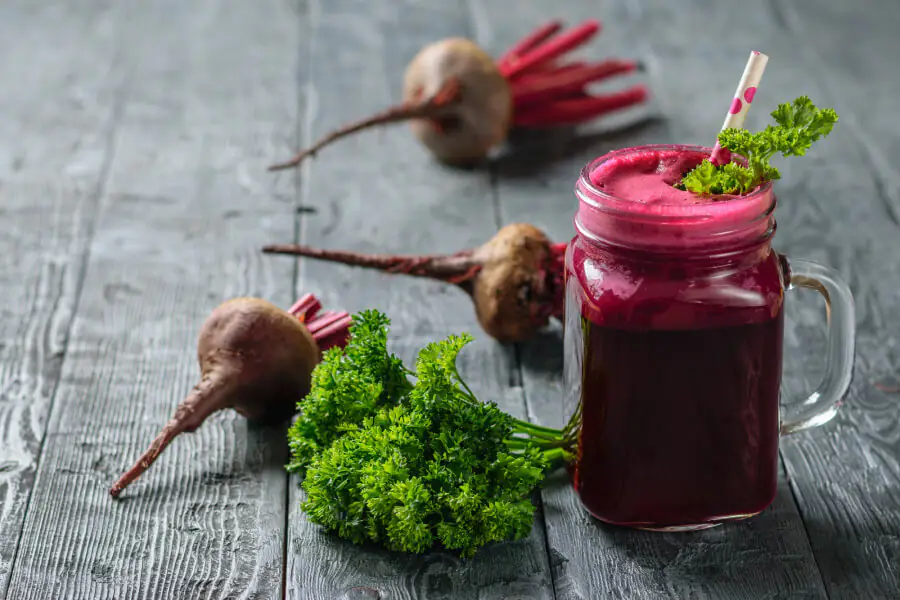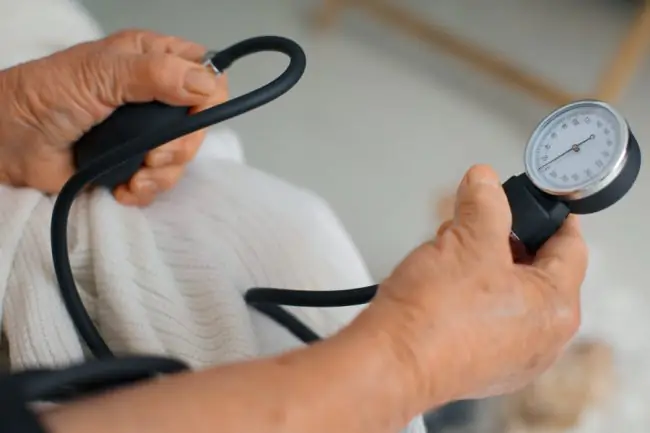The change of life in women at menopause introduces hormonal changes in several health aspects, including heart health.
Postmenopausal women are more prone to heart disease due to lower estrogen levels. Beetroot juice is one of the natural remedies that can help with this issue of heart health.
Learning the effects of this nutrient-packed juice is a simple yet effective way to improve cardiovascular health in postmenopausal women.
The Connection Between Menopause and Heart Health
Menopause usually occurs between the ages of 45 and 55 years and marks the close of the childbearing period.
As estrogen levels decrease, so does its protection of the cardiovascular system. The decrease, therefore, increases blood pressure, cholesterol, and atherosclerosis.
These conditions make postmenopausal women more prone to heart attacks and strokes. Therefore, prioritizing heart health during this phase is essential.
Why Postmenopausal Women Are More at Risk of Heart Issues
With hormonal changes, postmenopausal women are more prone to cardiovascular diseases. Low levels of estrogen have led to increased blood pressure and arterial stiffness.
Including changes in body weight, metabolism, and activity level, these factors alone bring a high increase in the risk of heart disease. For cardiovascular health to be maintained post-menopausal, it has to be highly proactive.
Beetroot Juice: A Natural Solution for Heart Health
This is one of the most effective natural ways of caring for your heart health during menopause. This beetroot is full of nitrates, vitamins, and antioxidants, hence it serves a number of purposes concerning cardiovascular health.
The nitrates in beetroot form nitric oxide in the body, which helps to improve blood circulation and reduce blood pressure to let vessels relax for the smooth working of the heart. It’s a quick, healthy way of taking care of your heart.
Main Nutrients and Components in Beetroot Juice
The major nutrient present in beetroot juice, which gives various benefits to the heart, is nitrates.
The body reduces these nitrates to a product known as nitric oxide, which improves the dilation of the blood vessels and thus favors improvement in circulation and reduction of blood pressure.
This antioxidant-rich juice protects the blood vessels from oxidative stress, which is a major risk factor for cardiovascular diseases.
Other friendly health compounds present in beetroot are folate, potassium, and fiber which are essential nutrients that keep the heart in good health.
How Beetroot Juice Affects Blood Pressure
High blood pressure is one of the major health concerns among postmenopausal women, which further results in cardiovascular diseases.
Beetroot juice has been seen to work effectively in lowering blood pressure, particularly among people suffering from hypertension.
The presence of nitrates in beetroot juice helps relax blood vessels, improves blood flow, and reduces vascular resistance, resulting in lower blood pressure.
This can, to a great degree, reduce the risk of heart attacks and strokes in postmenopausal women.
The Role of Nitrates in Heart Function
Nitrates in beetroot are one of the important nutrients assisting in improving cardiovascular health.
When nitrates are in the body, nitric oxide is produced after consumption; it serves to relax the blood vessels and also to dilate them.
This process improves circulation and reduces the strain on the heart. As a result, beetroot juice contributes to better blood flow, lower blood pressure, and improved function of the heart-just what a postmenopausal woman needs to preserve her cardiovascular health.
Beetroot Juice for Postmenopausal Heart Health
Many scientific studies have been conducted to analyze the benefits of beetroot for cardiovascular health.
According to a study published in the Journal of Nutrition, it was noted that subjects who consumed beetroot had their blood pressure significantly lowered.
In another study that appeared in the Hypertension Journal, it was established that beetroot improves arterial stiffness among people suffering from high blood pressure.
Based on these studies, it is beyond any reasonable doubt that beetroot juice might improve heart health in postmenopausal women.
Mechanisms of Action: How Beetroot Juice Works
The fact that beetroot juice contains a high amount of nitrates makes it heart-healthy. Nitrates are reduced into nitric oxide in the body, which relaxes and dilates blood vessels.
Improved circulation and reduced blood pressure are a result of this action. In addition, the various antioxidants present in beetroot reduce inflammation and oxidative stress, protecting the cardiovascular system from further damage.
All the described mechanisms combine to make beetroot one of the best ingredients in a heart-healthy diet.
Adding Beetroot Juice to Your Daily Routine
It does not require much hassle to add beetroot juice to one’s diet. One can easily have a glass of beetroot juice every morning, or mix it with other smoothies, which may be packed with nutrients for your heart.
Fresh beetroot juice is more nutritious, you may also find it available in the market. Just make sure to select a variety that does not contain any added sugars or preservatives if you want to reap the most benefit from them.
Practical Tips for Adding Beetroot Juice to Your Diet
- Start Slowly: Begin with a small amount and gradually increase your intake to allow your body to adjust.
- Combine with Other Heart-Healthy Foods: Pair it with foods like leafy greens, nuts, and seeds for even more heart benefits.
- Go for Fresh Juice: Freshly made beetroot juice keeps the most nutrients and is free of artificial ingredients.
- Watch for Side Effects: While it is generally safe, some people may experience some digestive issues or a temporary change in urine color. Consult your doctor before starting a new diet.
How to Choose the Right Beetroot Juice
The quality of the selection of beetroot juice has to be of high quality. Organic beetroot juice with no added sugars, preservatives, or artificial colors is best.
Cold-pressed juices retain more nutrients from the juice; hence, these would be a good option. If you use bottled beetroot juice, make sure on the label that it contains minimal ingredients for the best quality.
Lifestyle Changes for Better Heart Health
While beetroot is a powerful tool for improving heart health, putting it together with other heart-healthy habits can have an even greater impact.
Regular physical activity, such as walking, swimming, or yoga, is important to maintain weight within a healthy range and for the improvement of circulation.
A heart-healthy diet rich in fruits, vegetables, and healthy fats can further support cardiovascular health.
Other factors considered most important for heart health in postmenopausal women include stress management, avoiding smoking, and getting enough sleep.
Other Foods and Nutrients That Support Heart Health
Besides beetroot juice, many other foods are there that help the cardiovascular system to stay healthy. Omega-3-containing foods, such as fatty fish and flaxseeds, keep cholesterol low and reduce various types of inflammation in the body.
Foods rich in antioxidants like berries, dark chocolate, and green tea prevent the heart from being damaged by oxidants.
Adding these to your diet, along with beetroot juice, will surely bring some improvement in the health of your heart.
Conclusion
Drinking beetroot juice may turn out to be one of the least artificial, easiest ways for a woman to look after her heart in the menopausal years.
With its amazing capabilities of lowering blood pressure and circulation, a protector from oxidative stress, this juice does much more to promise substantial cardiovascular health benefits.
Consume this along with other heart-healthy habits and exercise routine-and beetroot will have you keep your cardiovascular health running optimally well even after menopause.
FAQs
Does beetroot juice boost heart health in menopause?
Yes, it helps support heart health in postmenopausal women by lowering blood pressure and improving circulation.
Does beetroot help with the heart?
Yes, beetroot is rich in nitrates, which are converted into nitric oxide to improve circulation and reduce blood pressure.
Does beetroot juice remove plaque from arteries?
It doesn’t directly remove plaque but helps improve circulation and reduce the risk of plaque buildup by lowering blood pressure.
How do you keep your heart healthy after menopause?
A combination of regular exercise, a heart-healthy diet, stress management, and consuming it can help keep your heart healthy after menopause.







